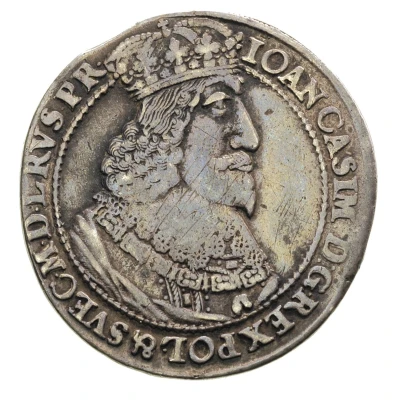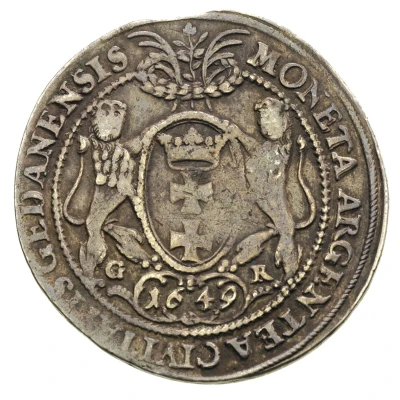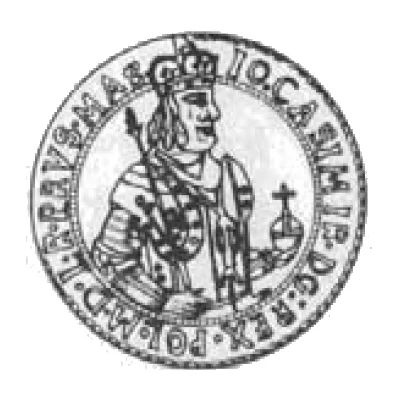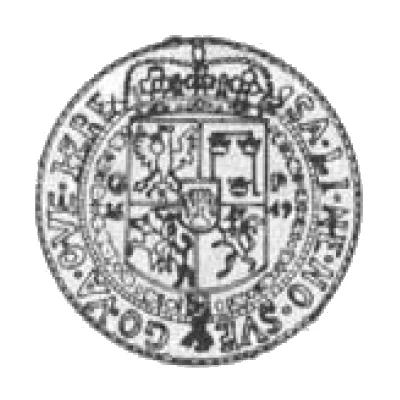


© Warszawskie Centrum Numizmatyczne s.j.
Półtalar gdański - Jan II Kazimierz Waza Gdańsk
| Silver | 14.284 g | 35.3 mm |
| Issuer | Polish–Lithuanian Commonwealth |
|---|---|
| King | John II Casimir Vasa (1649-1668) |
| Type | Standard circulation coin |
| Years | 1649-1650 |
| Value | ½ Thaler (Półtalar) (4) |
| Currency | First Zloty (1573-1795) |
| Composition | Silver |
| Weight | 14.284 g |
| Diameter | 35.3 mm |
| Shape | Round |
| Demonetized | Yes |
| Updated | 2024-10-07 |
| Numista | N#96921 |
|---|---|
| Rarity index | 100% |
Reverse
The emblem of Gdańsk held by two lions facing the front. A wreath of bay and palm leaves on top of it. The year and the designer initials below it.
Script: Latin
Lettering:
MONETA ARGENTEA CIVITATIS GEDANENSIS
G-R
1649
Translation: Silver coin, city of Gdańsk.
Comment
Kopicki 7636Punch 1:
IOAN CASIM D G REX POL &SVEC M D L RVS PR
MONETA ARGENTEA CIVITATIS GEDANENSIS
Ex.1
Price:
Picture: © ANMN
Ex.2
Price:
Picture: © ANMN
--------------------------------------------------------------------------------------------------------------------------------------------------------------------------------------------------------
Punch 2:
IOAN CAS D G REX POL &SUEC M D L RUS P R
MONETA ARGENTEA CIVITATIS GEDANENSIS
Price: 21 000 PLN
Picture: © ANMN
--------------------------------------------------------------------------------------------------------------------------------------------------------------------------------------------------------
Punch 3:
IOAN CAS D G REX POL &SUEC M D L RUS P
MONETA ARGENTEA CIVITATIS GEDANENSIS
Ex.1
Price: 31 000 PLN
Picture: © ANMN
Ex.2
Price: 20 000 PLN
Picture: © ANMN
-------------------------------
Kopicki 7637
Interesting fact
The Półtalar gdański was a coin used in the Polish-Lithuanian Commonwealth during the 17th century, and it was equivalent to half of a Polish talar. The coin , which features Jan II Kazimierz Waza, was issued in 1649-1650 and was made of silver. What's interesting about this coin is that it was minted during a time of great turmoil in the Polish-Lithuanian Commonwealth, which was facing military conflicts and political instability. Despite these challenges, the coin remained a popular form of currency and was widely used throughout the region.

